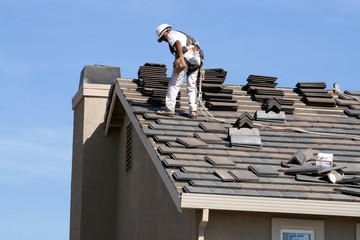
Plumbing involves installing, repairing, and maintaining pipes and fixtures that convey water and waste in residential, commercial, and industrial settings. These include water supply lines, drainage systems, and appliances. Avoid major drain clogs by regularly using a natural DIY drain cleaner. Pour a cup of baking soda and a cup of white distilled vinegar down the drain, let it bubble, then rinse with boiling water.
Grease and Oil
Grease is a liquid at room temperature but when it cools it congeals, creating a thick substance that can clog your pipes. Whether you’re cooking, frying or styling your hair, it’s important to know that grease should never be poured down the drain. Instead, it would help if you used a strainer to catch it and throw it away with the trash according to expert Plumbers Spring TX.
A grease trap is a large pipe that sits beneath your sink. Its job is to catch any grease that’s rinsed off plates or pots and prevent it from entering the main plumbing system. While a one-time slip-up of pouring grease down the drain won’t cause any immediate problems, it can lead to long-term clogs as the grease builds up on the sides of your pipes and becomes a hard-to-remove sludge.
Oil is a chemical compound that comes from natural or synthetic sources and is used for a wide variety of purposes, including lubrication. It’s often referred to as an all-purpose lubricant and is typically sold in liquid form. Oils work well to reduce friction in most machines, tools and equipment.
Lubricating grease, on the other hand, is a special type of grease that’s created from animal fats or vegetable oils. It’s a semi-solid that contains a mixture of base oil and thickener, and it has specific additives to suppress or enhance its innate properties. Grease also has a ‘dropping point’, which is the temperature at which it begins to separate from its thickener.
When shear stress is applied to a grease, its viscosity decreases and it behaves like a liquid. This process is known as shear thinning. Grease’s rheological properties make it a great lubricant, especially in heavy machinery and tools that need less frequent re-lubrication.
It’s important to note that it is possible to mix some greases and oils, but miscibility is a term that refers to their ability to blend with each other without losing any of their individual characteristics. The Interflon Miscibility Chart is a good resource to determine if your chosen grease or oil will be compatible with another.
Baby Wipes
Although manufacturers label most baby wipes as flushable, they don’t dissolve in water and can clog your toilet. Wipes can also wreak havoc on your pipes and your septic system as they travel to your sewer line or the local wastewater treatment plant.
The ingredients in wipes are not safe for the environment. Many are derived from petroleum or natural gas. These chemicals can cause damage to pipes and septic systems, disrupting their normal function and causing backups into your home.
Even flushable wipes can clog your toilet if you use them frequently. Manufacturers have replaced the traditional fabric weaving process with a non-woven fabrication method similar to dryer sheets. Raw materials, including cotton, polyester, viscose, cellulose, and polypropylene, are blended together in giant vats of wet mixture. Short and long fibers are formed through heat, chemicals, and pressure. The mixture is then flattened and sent through industrial machines that cut, shape, saturate (with wet wipe ingredients), fold, and roll the product into spools resembling paper towel rolls.
A wet wipe contains a high water content to help you clean your baby. It also has gentle cleaning agents to pick up oily messes and residue from your child’s skin. It also has a low buffering pH to maintain your baby’s delicate skin.
In addition to a high water content, baby wipes contain an array of chemicals that help them to stay moist and soft on your baby’s sensitive skin. These ingredients, which are not safe for the environment, can leave behind a sticky film on your drains that prevents them from flowing properly.
If you are using baby wipes and have a blocked toilet, pouring a little dish soap into the bowl can work to loosen the clog and help it flow. This works because the soap reduces the surface tension of water. Once the clog is loose, you can remove it with a plumbing snake or a traditional toilet plunger.
You can also try to break up a clog with a hand auger. These tools, which look like wire coat hangers with claws on the end, can be used to pull or push a clog out of a pipe. They’re much more effective than chemical drain cleaners, which can damage pipes and septic tanks.
Hair
Hair, whether it is your own or Fido’s, can clog drains. It is a common problem caused by oily deposits left behind from soap and body oils, creating a sticky surface that traps other substances like hair. To prevent this, pour a bottle of white vinegar down your drain once every 3 months and then hot water to break down any remaining buildup. You can also use a wire hanger down the drain to remove hair before it gets stuck in the pipe.
Food
Food residues like pasta, rice, and potato peelings are often thrown into the drain, but these foods are rich in starch that expands when it comes into contact with water. This can cause them to clog the pipes. Similarly, cooked fats and oils harden when they come in contact with the cold water inside the drain pipes and can narrow the passageway. To avoid this, throw any fats and oils into an old coffee can or the garbage. Lastly, stringy foods like celery and asparagus should also be thrown into the trash instead of the sink as they could wrap around the drain and clog it.

